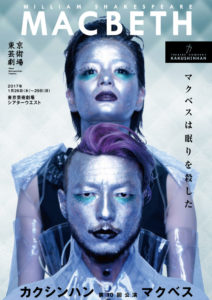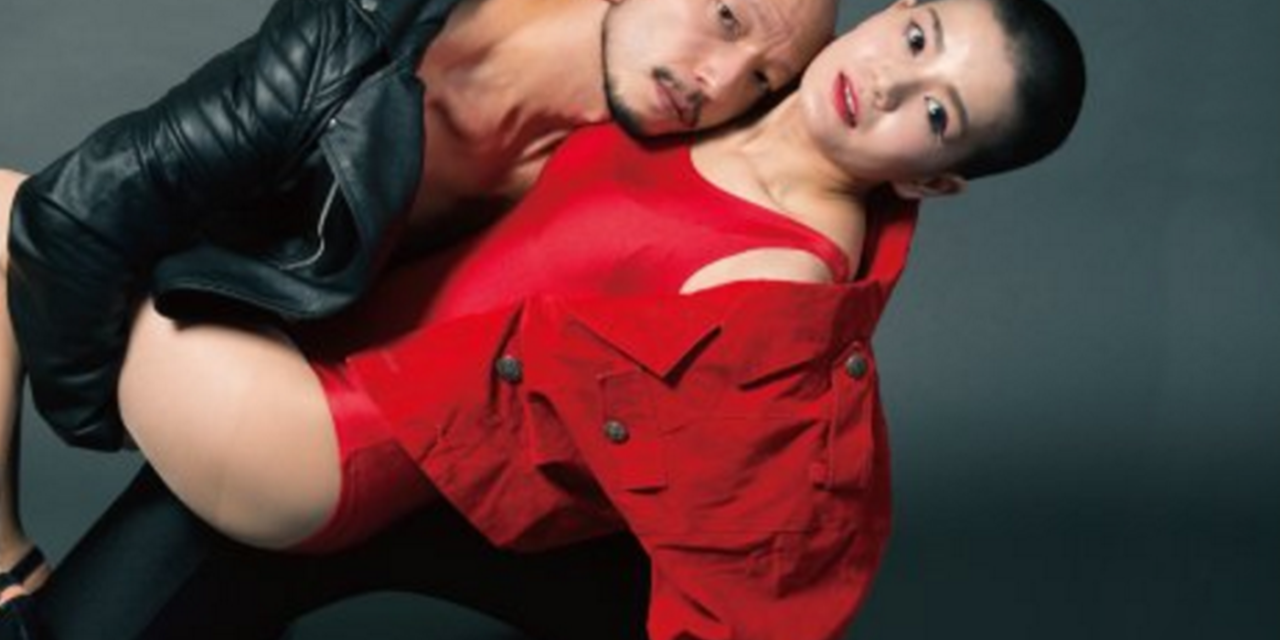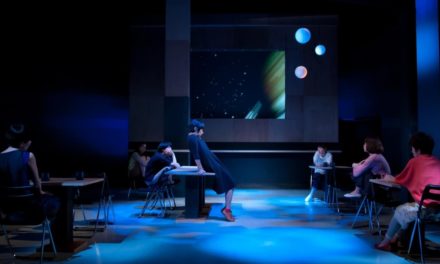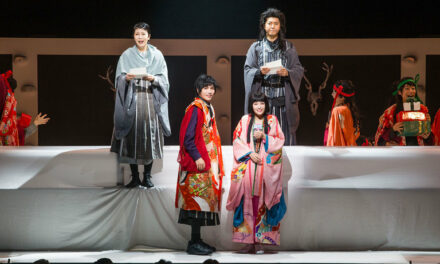“When I was studying English literature at the University of Tokyo, even though I had no theater experience at all, I got the chance to direct Macbeth,” 33-year-old Ryunosuke Kimura explained when we met recently at a rehearsal studio in downtown Tokyo.
“To start my research, I rented a video of Ninagawa Macbeth — but I was amazed because it seemed entirely different from William Shakespeare’s Macbeth,” he recalled.
Indeed it was amazingly different, because the late Yukio Ninagawa set his 1980 masterpiece in samurai-era Japan, not medieval Scotland, and he also filled most of the stage with a giant butsudan (household Buddhist altar) as what he termed “a tool to connect the Scottish story to Japanese people.”
“Still, I always wondered about that butsudan,” Kimura continued.” Then I read something the literary critic Hideo Kobayashi wrote about his own work, when he said he actually borrowed others’ text and used it to present his own views.
“It was such an exciting thing to do, and from that moment I wanted to be a theatre director.”
To date Kimura has staged nine of Bard’s plays with his Kakushinhan (meaning “Convinced Criminals”) theater company. Of those, he earned “special plaudits” in the Stage page’s 2016 roundup for his “tour de force” — a hit monthlong run spanning most of England’s bloody 15th-century history with both Richard III and the Henry VI trilogy he condensed into 3½ hours from the original’s 10 hours.
So, when I heard that Kakushinhan’s 10th Shakespeare production was set to be Macbeth, I headed off to talk about it with the director and some of the cast ahead of its Jan. 26 opening at Tokyo Metropolitan Theater in Ikebukuro.
Though the company has only ever staged Shakespeare plays, Kimura surprisingly said that wasn’t his intention when he founded it in 2012.
 “My priority is to make contemporary theatre for today’s audiences — especially those of my own generation,” he explained. “To do so I’ve tried to pick the best plays to reflect our real world and, as a result, all the plays have been by Shakespeare.”
“My priority is to make contemporary theatre for today’s audiences — especially those of my own generation,” he explained. “To do so I’ve tried to pick the best plays to reflect our real world and, as a result, all the plays have been by Shakespeare.”
“First, his plays offer kaleidoscopic possibilities of interpretation, so they’re perfect texts to dramatize. Second, they describe a fundamental subject for human beings: dying and loss.
“In my generation, many people’s values have changed unexpectedly due to terrorism or disasters such as 3/11 (the Great East Japan Earthquake of March 11, 2011), and I think Shakespeare — not Greek mythology or Chekhov — is most suitable to reflect the fragile state of that world,” Kimura said.
Hence with Donald Trump unexpectedly becoming the U.S. president, what can we expect from Kimura’s Macbeth? After all, the Bard’s shortest tragedy traces noble Macbeth’s and his wife’s fatal descent into paranoid madness when, following a witches’ prophesy that he will become King of Scotland, he starts murdering in pursuit of power for its own sake.
“Macbeth has a very theatrical structure,” Kimura pointed out. “That’s because theatre involves the art of showing another world than our actual world, and such imaginative, fictitious worlds as this play’s can inspire audiences and make people realize there are many entirely different approaches to their daily lives.
“In Macbeth’s case, he’s a heroic general who sees unrealistic things like the three witches, and hears their voices, and that changes his life dramatically. So the physically touchable real world and the untouchable conscious world are jumbled because the witches cross over those two worlds.
“In essence, I think that is exactly why theatre works.”
At this point, Yamato Kochi, acting the title role for the third time in his career, joined in to say he is now especially mindful of the misguided love drama at the heart of the play.
“Shakespeare wrote this early in the 17th century, so the title became Macbeth,” he noted. “However, if it was written today, it would be Mr. & Mrs. Macbeth.”
Speaking for herself, Maimi, who plays Lady Macbeth, added: “In general, people describe my character as a horrible wife, but actually she did everything out of love for her husband. So is her love actually a bad thing?
“I want to grope for an answer to that, as it also relates to that key line the witches recite as they exit Scene 1: ‘Fair is foul and foul is fair: Hover through the fog and filthy air.’ ”
Meanwhile, Yudai Mark Iwasaki, who plays Hecate (Queen of the Witches) as well as the Thane of Ross (a high-ranked royal official), joined in to cast light on Kimura’s direction, saying: “He gave us his big picture of the play’s ideas and images, then, left us free to realize his almost dreamlike vision. That sort of imaginative creation is so exciting.”
To this, Kochi (Macbeth) immediately added: “Kimura urged us to physically express really unbelievable, supernatural things — such as soaring up into the air. I call that his ‘let their imagination take flight’ method.”
At a more nitty-gritty level, Kimura himself said he has excluded almost all props and sets from this production, which will just have a few chairs on the stage.
“Macbeth was seeing invisible things, witches, ghosts and (his nemesis) Birnam Wood. So, to reflect what he experienced, I wanted to create imaginary worlds on an empty stage — ones that are invisible, but can truly exist in a human’s mind,” Kimura said. “I don’t want to just represent Shakespeare’s stories pictorially. First and foremost, we need to approach them as plays about our actual lives.
“So we create our own Shakespeare, and one day I hope to present our vivid Japanese version to audiences around the world.”
This article was originally published on thejapantimes.co.jp. Reposted with permission. Read the original article.
This post was written by the author in their personal capacity.The opinions expressed in this article are the author’s own and do not reflect the view of The Theatre Times, their staff or collaborators.
This post was written by Nobuko Tanaka.
The views expressed here belong to the author and do not necessarily reflect our views and opinions.


















